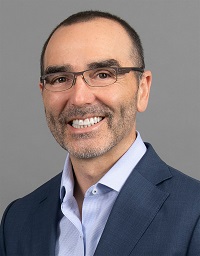
I had the pleasure recently to talk with Dr. James Woodyard and many other successful dentists this past Wednesday, August 16th, as part of the Select Study Club. Dr. Woodyard and I discussed the importance of succession planning, and the impact of DSOs. It is such a wonderful time to be having this discussion. As we sit here today, around 10,000 baby boomers turn 65 every day. Can you even comprehend that? Back in the day there were 10,000 babies being born, each day. Really? Now, this famed generation, defined by those born between 1946 and 1964, are retiring and transitioning to the next phase of their lives. And, in many instances, that means transitioning their businesses to the next generation. It also means that we are experiencing the greatest wealth transfer in the history of the United States. Dentistry is no different. Dentistry has certainly been and will continue to be impacted by these circumstances.
I have been blessed over the years to have the opportunity to work with so many successful dentists as part of their transitions, and their overall succession plans. So, when Dr. Woodyard asked me to participate in a discussion with him, I jumped at it. Dr. Woodyard and I talked and brainstormed about what this all means for many, recognizing that everyone’s circumstances and perspectives are unique. Here is a summary of that discussion.
- Title: Succession Planning: What is It and how do DSOs Impact those Plans?
- Description: As some look forward to retirement, the idea of succession planning can be an emotional and daunting task. There are plenty of options to consider when it comes to the succession plan. The new buzz, however, in succession planning is DSOs. During the presentation we examined succession planning options and thought through each of those options. We discussed ways to prepare for transitioning their practices, whether to a family member, a third-party dentist, their employees, or some form of private equity, as part of a DSO. Dr. Woodyard also discussed his own personal journey and what he learned along the way. We emphasized the fact that even if you are not in this “retirement/transition” phase of your life, you still need to have a plan. If you do not intentionally plan, someone or something will determine that plan for you.
- Topics that were Covered:
- Defining Succession Planning.
- Talking through the options, including partnering and selling to an associate, selling to a third-party doctor, or selling to a DSO!
- When you should start thinking about your Succession Plan.
- The importance of the first step to your Succession Plan.
- The importance of “seller side” due diligence.
- Understanding the importance of your Deal Team.
- Goal for the Discussion. Ensuring that you understand your succession planning options, including making an informed decision, and not falling prey to the “fear of missing out” or FOMO.
We ended with some action items: (i) succession; (ii) commitment; and (iii) follow-through. That is, define what succession means for you, commit to it, and follow-through with it. If we are not intentional about it, we will find that others or circumstances outside of our control will determine, for us, what our succession may look like.
Thank you again, Dr. Woodyard, for inviting me and allowing me to be involved. I was and am humbled by the opportunity. It was a pleasure.

Vince Nardone is a partner with Benesch, with a focus in Benesch’s healthcare practice. He is a thought leader and regular speaker in the dental industry. He may be reached at (614) 223-9326 or vnardone@beneschlaw.com.
 Vince Nardone Discusses Employment Contracts with Ohio State Dental Students
Vince Nardone Discusses Employment Contracts with Ohio State Dental Students  Navigating the 2024 Landscape: Strategies and Considerations for Dental Support Organizations (DSOs)
Navigating the 2024 Landscape: Strategies and Considerations for Dental Support Organizations (DSOs)  Sellers of Dental Practices to DSOs need to have a Buyer’s Mentality Requiring Selectivity and a Well-Thought-Out, Decision-Making Process
Sellers of Dental Practices to DSOs need to have a Buyer’s Mentality Requiring Selectivity and a Well-Thought-Out, Decision-Making Process  Increasing Profitability by Minimizing Disruptions within Your Dental Practice
Increasing Profitability by Minimizing Disruptions within Your Dental Practice  As a Dentist, What Are My Obligations Related to Out-of-State Patients and Potential Prescription Drug Abuse?
As a Dentist, What Are My Obligations Related to Out-of-State Patients and Potential Prescription Drug Abuse?